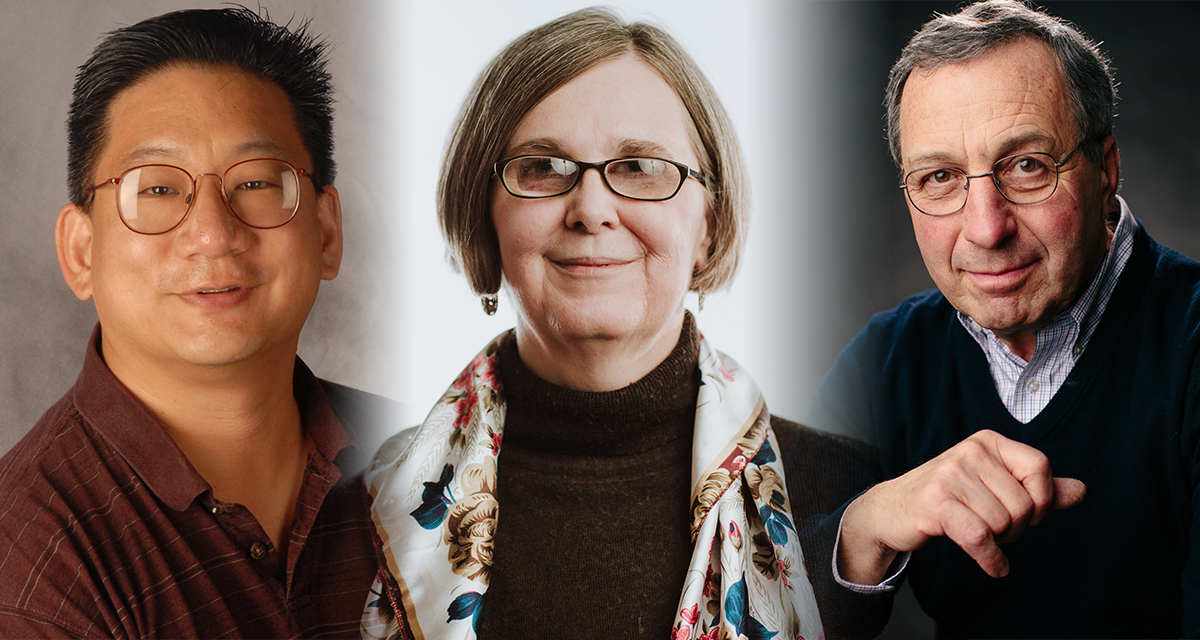Retiring Faculty Profess Lessons from the Classroom: Part 2
Since the Middle Ages, the word “professor” has referred to someone who teaches—professes—a branch of knowledge. At Gordon, faculty continue the tradition of sharing expert knowledge from their academic field of study (though leaving the regalia for just a couple of special occasions). But they also take the vocation of a professor a step further by sharing their faith and personal wisdom, from lessons in motivation to finding the beauty in mathematics.
As the 2020–21 academic year concludes, The Bell caught up with six of these beloved mentors who are departing from Gordon after years of inspiration and personal investment. In the second article featuring their reflections, three professors retiring from Gordon talk about their upcoming plans and offer their insights once again. Read the first article here.
David Lee, Professor of Physics, 3-2 Engineering Program Coordinator
Years at Gordon: 14
Next steps: First, spending time with his daughter before she starts college. And since he says he’s too young to truly retire, Lee will help to run Teachspin, a company that makes undergraduate physics lab equipment; continue working with Kinalco, a startup commercializing a novel shape-memory alloy; and explore funding opportunities for a new approach to training future physicists using a one-on-one mentoring model.
Most important lesson he’s learned: “Culture is set from the top.”
Prayer for students: “Ignore the constant focus on worldly definitions of leadership and success, and instead center on having a wonder-filled, challenging, intentional, communal and joyful time of learning and growth. I pray they will come to recognize the study of physics (and its subsequent practice) as an act of piety.”
A meaningful memory: Former Provost Mark Sargent’s Convocation on the last sentence of Middlemarch and receiving a 64-page memory book with pictures, quotes and notes from former students. “It is my most cherished possession from this place.”
Leasa Lutes, Professor of Spanish and German
Years at Gordon: 28
Next steps: Finishing her Master of Arts in Religion degree at Gordon-Conwell Theological Seminary, exploring chaplaincy, being more involved in her two home churches, teaching English to Spanish-speakers, and traveling.
Prayer for students: “That they would understand that people most different from them are as much God’s creation as they are, and find ways to love others as God has found ways to love us. This is a lifelong challenge for most of us.”
Favorite class to teach: Reluctant to designate favorites, she says it’s a tie between Intermediate Spanish and German. In Intermediate Spanish, “The underlying objective in the course is simply to support [students] in improving their expressions. The students become very creative, which is a pleasure to witness. Their hard work starts to pay off and they generally enjoy the process.” But, she adds, “German has its own advantages. One of these is an undergirding light humor that pervades the language.”
Dream retirement vacation: Iquasu Falls in Argentina. “It is SOOO very beautiful!”
Richard Stout, Professor of Mathematics
Years at Gordon: 41
Next steps: House projects, then pursuing his interests in historical and foundational topics in mathematics.
Most important lesson he’s learned: Be enthusiastic about the material, show students you care, be flexible and, most importantly, “don’t stand in front of what you’re writing on the blackboard!”
Prayer for students: “I hoped that the material we studied in my classes would help students grow both mathematically and as men and women of God. I also hoped that along the way they might come to truly appreciate the beauty of mathematics.”
A meaningful memory: “I often marvel at the fact that I was able to have a career in this setting, doing something I love with such a remarkable group of people.”
Reflections upon retiring: “I’ve come to realize how fragile a community can be and that it takes persistent effort to preserve the best of its features.”
Dream retirement vacation: Returning to Cambridge, England, “so I could root around in the libraries at many of the colleges there.”
 The Bell
The Bell